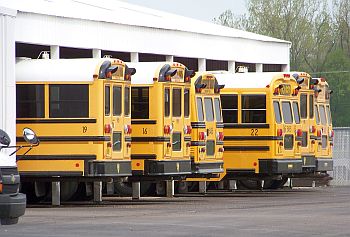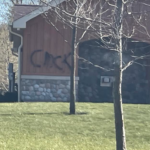 06/07/12 The proposed transfer of bus maintenance from the Plymouth Schools to Weirs International is still up in the air. During the Plymouth School Board meeting on June 5, no action was taken and the matter was tabled until the July meeting.
06/07/12 The proposed transfer of bus maintenance from the Plymouth Schools to Weirs International is still up in the air. During the Plymouth School Board meeting on June 5, no action was taken and the matter was tabled until the July meeting.
Currently, routine maintenance and repairs are made at the school’s bus garage located off Berkley Street. The school corporation has a fleet of 42 buses including the four they keep as spares.
Superintendent Daniel Tyree said the space now occupied by the bus garage is needed for vocational classroom space. It was noted in the meeting that a local business is proposing to supply CNC machines for training in precision manufacturing and advanced manufacturing. Additional classes could be offered in HVAC, according to Tyree.
Tom Wiers of Wiers International had presented a proposal to the Board at their May meeting. At the June meeting, a second proposal from Oliver Ford was considered. Assistant Superintendent Rodger Smith said, “Both have put in a lot of effort and study.” However, his recommendation to the Board was to adopt the Wiers proposal.
At the May meeting, Tom Wiers said they would be looking a long-term service contract of ten years. He indicated that there would be a fixed monthly charge for the services. The buses would be housed in a fenced designated parking area at Wiers in the Industrial Park. Smith explained that the move would be advantageous and an added value. Smith said, “We need t o find ways to spend less.” Smith said he used similar arrangements when he was with Kendallville and John Glenn Schools. He said, “It’s all who you partner with.”
Responding to questions from the media on Wednesday, Smith said, “If one of the proposals is adopted, all the details of that proposal will be public.” He said, “As opposed to a bid procedure, a request for proposal procedure allows the vendor to require that the details be kept private until a deal is stuck.” He said in addition to the guarantees of safety and storage of equipment, the proposal essentially covers four areas of cost comparison: Parts costs, labor cost, fixed cots, and total cost. He said, “We predict essentially a flat line cost to the district. Under our current system, in the past three years, those costs have risen 8 percent and 13 percent.”
The meeting room was filled to standing room only on Tuesday night, including many school bus drivers. Among those drivers speaking on the topic was Paul Costello. Costello questioned how much a renovation the space for classroom use would cost, Costello said, “It leaves every tax payer in the dark.” He, along with fellow driver Sherrie Martin, outlined what they believe would be additional costs for traveling to the Weirs site in the Industrial Park to pick up their busses. Costello indicated that it could be as much as 35,000 extra miles each year.
Current bus mechanic Mike Fisher expressed his concerns as well. He said, “I know those buses as well as Rick (Transportation Director). “ He added, “I’m not prepared to move to another location. I enjoy my job here.” Weirs has offered to employ Fisher at their facility if an agreement is put in place between the schools and Wiers.
Martin, who has been driving buses for 29 years, offered her concerns over fuel tanks that could still be buried under the flooring in the garage. She implied that there could be leaks coming from them. She said, “I’d like to know if all this stuff has been figured? You guys are going to have to come up with money from somewhere.”
Board member Larry Pinkerton then asked if money was available for renovation. Superintendent Dan Tyree said that renovation costs are approximately $80 per square foot and building a new building would be approximately $150 a square. Referring to the need for many graduating students to be trained for future employment, Smith said, “I don’t know if the kids of the district can afford to wait. They need to compete for jobs.”
Pinkerton then asked if a study for possible contamination had been done and eventually indicated that the board needed that information and possible costs involved before proceeding. He then made the motion to table the matter until the next meeting.
Carol Anders Correspondent













